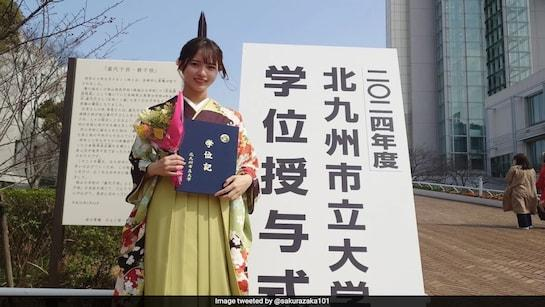Real estate investing is a popular strategy for salaried professionals looking to build wealth, generate passive income, or save on taxes. While many start as individual investors, scaling up often leads to questions about whether to continue as an individual or register a company. This article explores the different ways to invest in real estate, their tax implications, and how to determine the best approach for your situation.
Why Invest in Real Estate?
Real estate is attractive for several reasons:
• Stable Income: Rental properties provide a relatively predictable cash flow.
• Leverage: Loans allow investors to acquire properties with a fraction of their actual value.
• Low-Interest Rates: Affordable financing makes real estate investing more accessible.
• Tax Benefits: Various deductions help investors minimize taxable income.
However, the key question remains: Should you invest as an individual or through a company?
Three Ways to Invest in Real Estate
1. Individual Investor (個人 こじん)
• Ideal for beginners.
• Simple tax reporting—real estate income is aggregated with salary income.
• Depreciation and expenses can be used to lower taxable income.
• No requirement for complex bookkeeping.
• Best suited for those with 1–2 properties.
2. Sole Proprietor or Self-Employed (個人事業主 こじんじぎょうぬし)
• Offers higher tax deductions.
• Losses can be carried forward for up to 3 years.
• Allows for a broader range of tax-deductible expenses.
• Taxes are still based on personal income tax brackets (5%–45%).
3. Company (法人化 ほうじんか)
• Suitable for investors with more than five independent houses or ten apartment units.
• Taxed separately from personal income (corporate tax rate ~15%–23.2%).
• Allows for salary-based tax deductions.
• Enables loss carryover for up to 10 years.
• Requires company registration, social insurance payments, and bookkeeping.
Tax Considerations for Individual Investors
• Income Aggregation: Real estate income is combined with salary income.
• Tax Deduction through Depreciation: Property depreciation helps reduce taxable income.
• Short-Term vs. Long-Term Capital Gains:
• Selling within 5 years: Taxed at 40%.
• Selling after 5 years: Taxed at 20%.
• Minimal Effort Required: No strict bookkeeping necessary.
Understanding Depreciation in Real Estate
Depreciation allows investors to deduct the property’s reduced value over time. For example:
• New Building (47-year depreciation period)
• Property Value: ¥15 million
• Annual Depreciation: ¥15 million × 0.022 = ¥330,000
• Old Building (35-year depreciation period after adjustments)
• Property Value: ¥10 million
• Annual Depreciation: ¥10 million × 0.022 = ¥220,000
However, when selling, if the property’s selling price is higher than its depreciated book value, capital gains tax applies (20%–40%).
Key Expenses to Deduct for Tax Savings
Investors can deduct various expenses to reduce taxable income:
Common Expenses:
• Loan interest
• Property tax
• Insurance premiums
• Maintenance fees
• Repair costs
• Advertising costs for tenants
Sole Proprietors Can Deduct More:
• Employee salaries (excluding the owner’s)
• Office rent (if home-based, up to 30%)
• Business tax
• Outsourcing fees
• Employee benefits
Maintaining receipts for 5–7 years is recommended to avoid tax issues.
Investing via a Company: Pros and Cons
Pros of Incorporating a Real Estate Business:
- Lower tax rates (corporate tax ~15%–23.2%).
- Losses can be carried forward for up to 10 years.
- More deductions, including owner’s salary.
- Separate taxation from personal income.
Cons of Incorporating a Real Estate Business:
- Fixed costs such as ¥70,000 in resident tax, even for a negative income.
- Higher setup costs (¥100,000+ for registration).
- More complex legal and financial requirements.
- Additional taxes, such as social insurance for employees.
Most real estate professionals recommend incorporating only when an investor earns multi-million yen rental income annually or owns more than five properties.
Comparing Individual vs. Company Investment
| Criteria | Individual | Company |
| Setup Cost | ¥0 | ¥100,000+ |
| Running Cost | Low | High (staff, rent, taxes) |
| Tax Rate | 5%–45% (personal income) | 15%–23.2% (corporate) |
| Loss Carryover | 3 years | 10 years |
| Administrative Effort | Low | High |
| Best For | Beginners, small-scale investors | Large-scale investors (5+ properties) |
Blue Return Tax System (青色申告)
This system provides tax benefits for individuals and sole proprietors:
• Deduction up to ¥650,000 for proper bookkeeping and e-filing.
• Loss carryforward for 3 years.
• Offsets real estate losses against salary income.
• Requires double-entry bookkeeping and document retention for 7 years.
To apply, investors must submit a 青色申告承認申請書 form by March 15.
Loss Carryover Strategy to Reduce Taxes
If an investor makes a loss in real estate income, they can offset it against future profits:
| Year | Gain/Loss | Carried Over Loss | Taxable Income |
| 2021 | -¥1,000,000 | – | ¥0 |
| 2022 | ¥400,000 | ¥-600,000 | ¥0 |
| 2023 | ¥250,000 | ¥-350,000 | ¥0 |
| 2024 | ¥400,000 | ¥0 | ¥50,000 |
By leveraging 損益通算 (Son-eki-tsu-san), investors reduce future tax burdens.

Final Thoughts
• For most salaried workers, investing as an individual or sole proprietor is sufficient.
• The Blue Return Tax system offers significant deductions even without incorporating.
• Registering a company is beneficial for investors who scale up significantly but comes with increased complexity and costs.
• Depreciation, expense deductions, and loss carryover are key strategies to minimize taxable income.
Disclaimer
- I am not a tax, insurance, investment or real estate advisor
- Consult with a professional for your situation to get accurate/specific advice
- Use these material only for gaining knowledge
- For ease of understanding, I have simplified as required
- Numbers/facts do change over time, I refresh them whenever I can
- Uncopyrighted (except for where I credit) / To share with those in need
















